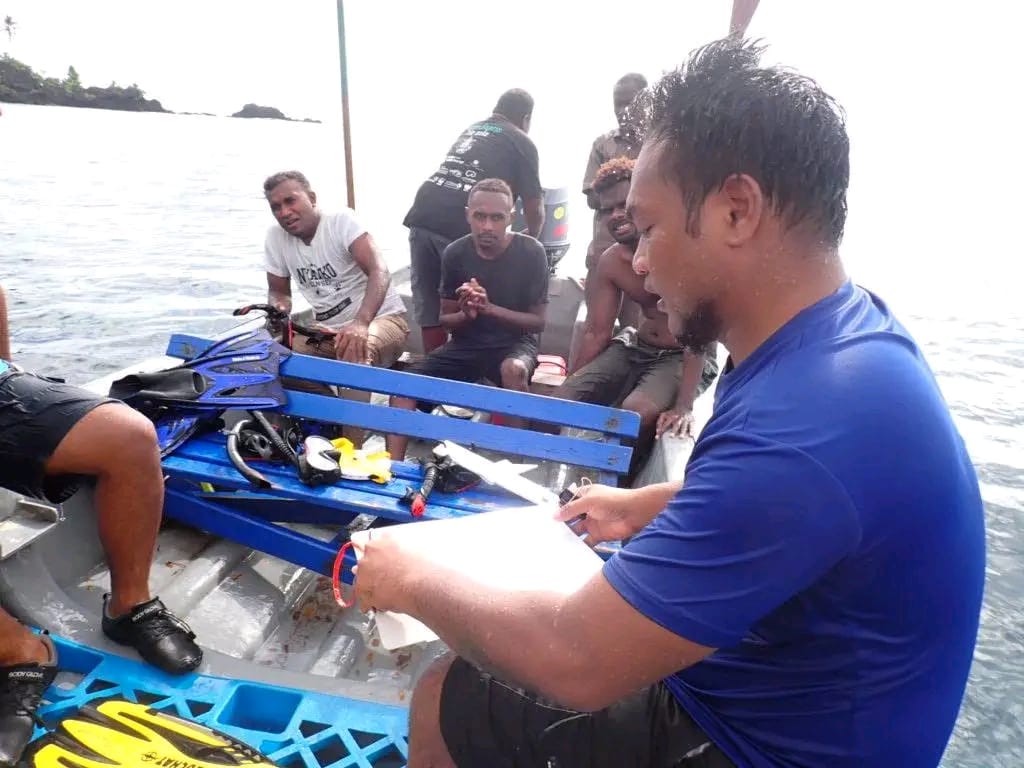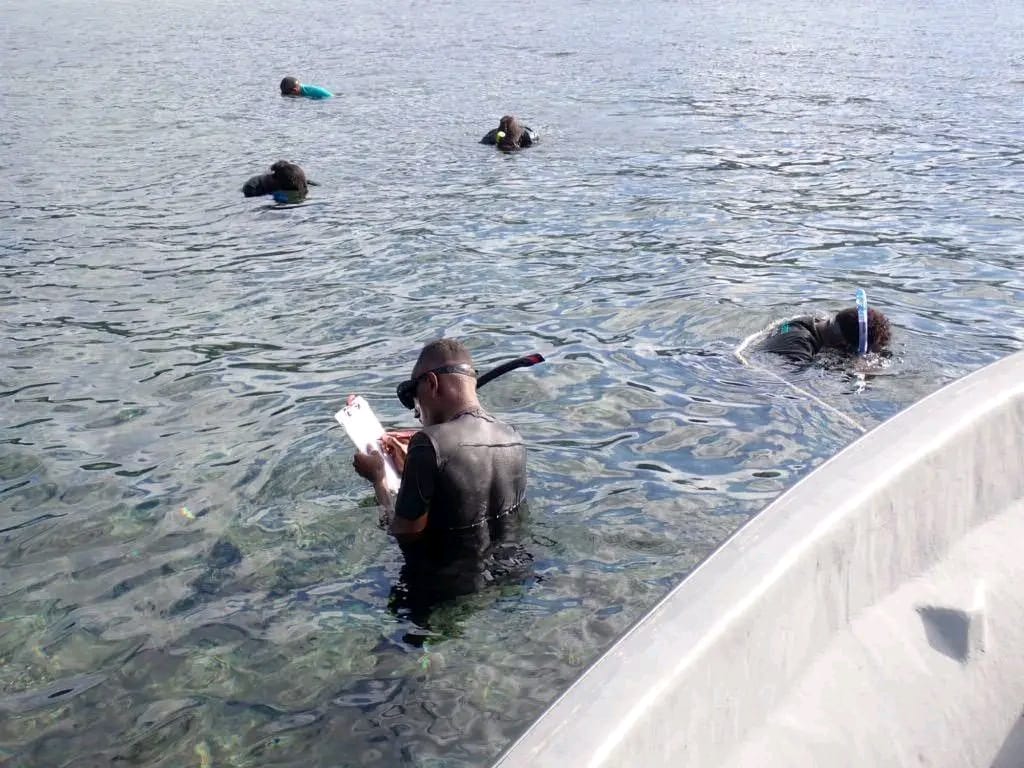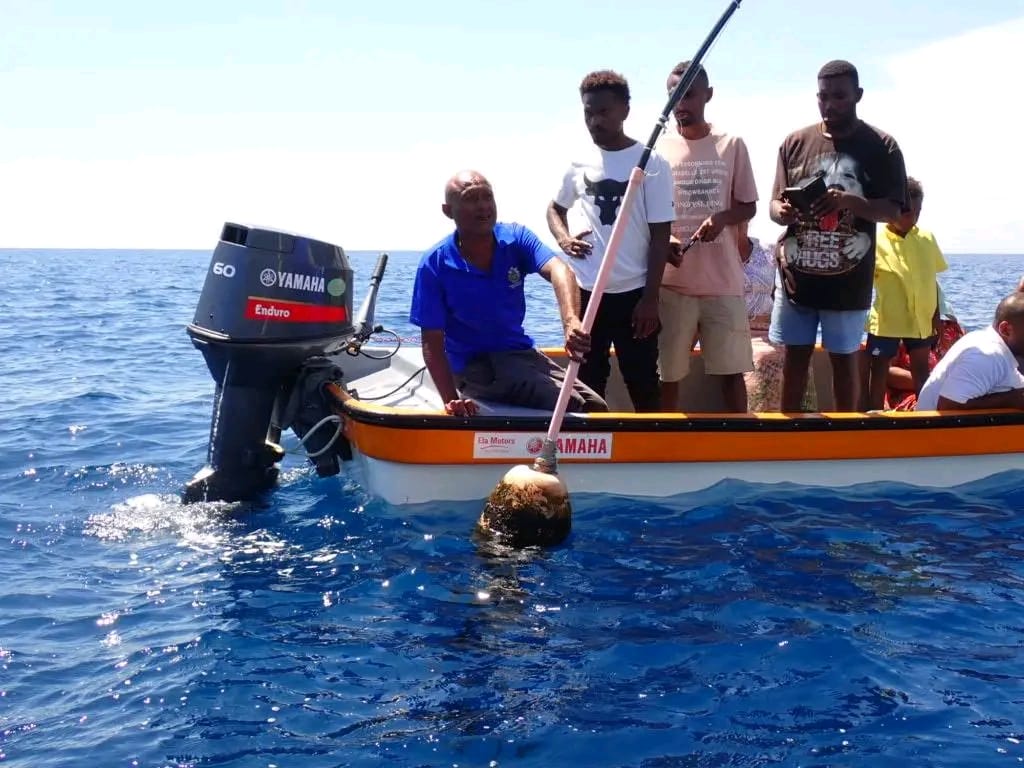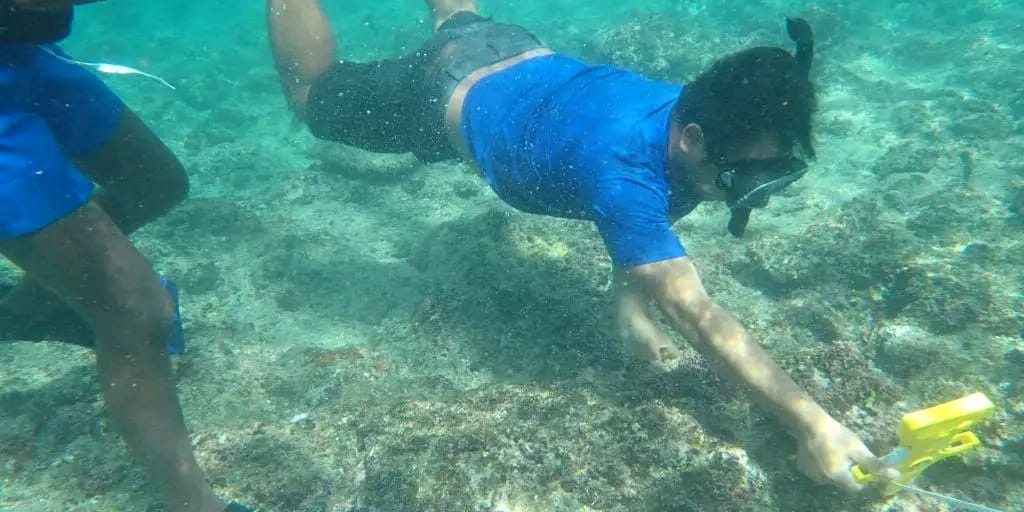An international consultant in fisheries economics, aquaculture, and community development, Mitsuo Iinuma, has teamed up with students from the Solomon Islands National University (SINU) to conduct hands-on marine resource monitoring at Tiaro Bay Marine Protected Area (MPA).
The initiative was carried out in close collaboration with the Ministry of Fisheries, community members from Tiaro Bay West Guadalcanal and faculty staff from SINU’s Faculty of Fisheries and Marine Resources.
The practical field session focused on monitoring algae, particularly Takasegai, across four designated sites within the marine reserve.
Though the search for shellfish proved challenging, the exercise was an opportunity for students and the local community to gain foundational knowledge in resource management through active participation and real-world observation.
“It turned out to be an afternoon activity, and while the search for shellfish was a bit difficult, I think the community and students were able to understand the basics of resource management through practice,” said Mr. Iinuma.
Exposure to Sustainable Practices and Livelihood Models
Mr. Iinuma, a former Associate Development Specialist at the Japan International Cooperation Agency (JICA) and currently a consultant with IC Net Limited, also introduced students to a range of innovative coastal resource management approaches implemented by the Tiaro Bay community.

These included:
• Floating fish aggregating devices (FADs)
• Solar-powered refrigeration systems
• Tilapia farming techniques
The visit provided students with valuable insight into how conservation and sustainability can be effectively integrated with local livelihood activities.
Students also benefited from on-site commentary provided by representatives from the Ministry of Fisheries and members of the Community Resource Management Committee, who shared their experience managing marine resources at the community level.
Mr. Iinuma, who also served as a part-time lecturer at the Tokyo University of Marine Science and Technology, highlighted the importance of combining academic learning with practical, community-based engagement.
The initiative forms part of ongoing efforts to strengthen capacity in coastal fisheries management and to build stronger connections between academic institutions, communities, and development partners.
By John Chrisma
Solomon Star Online











